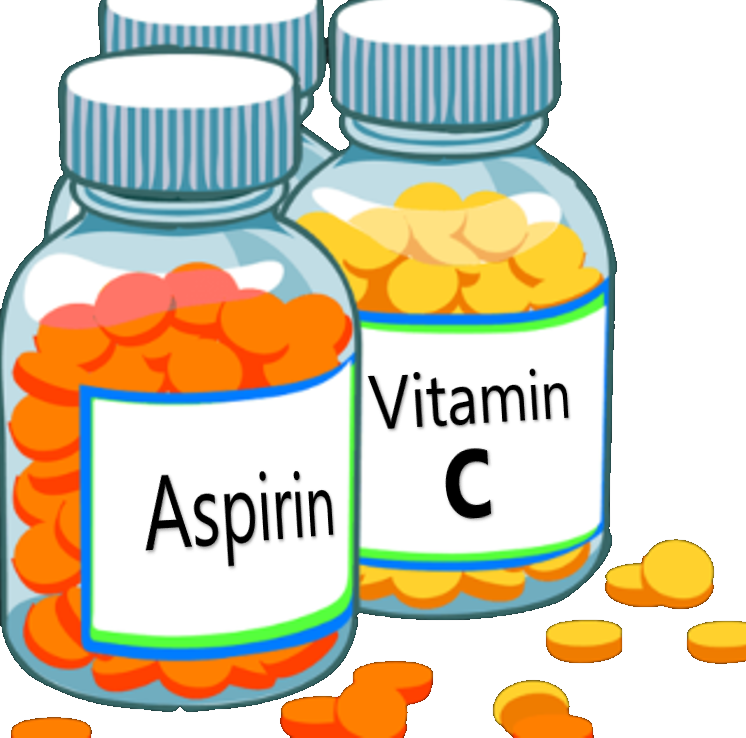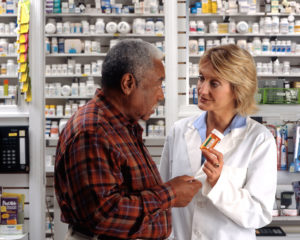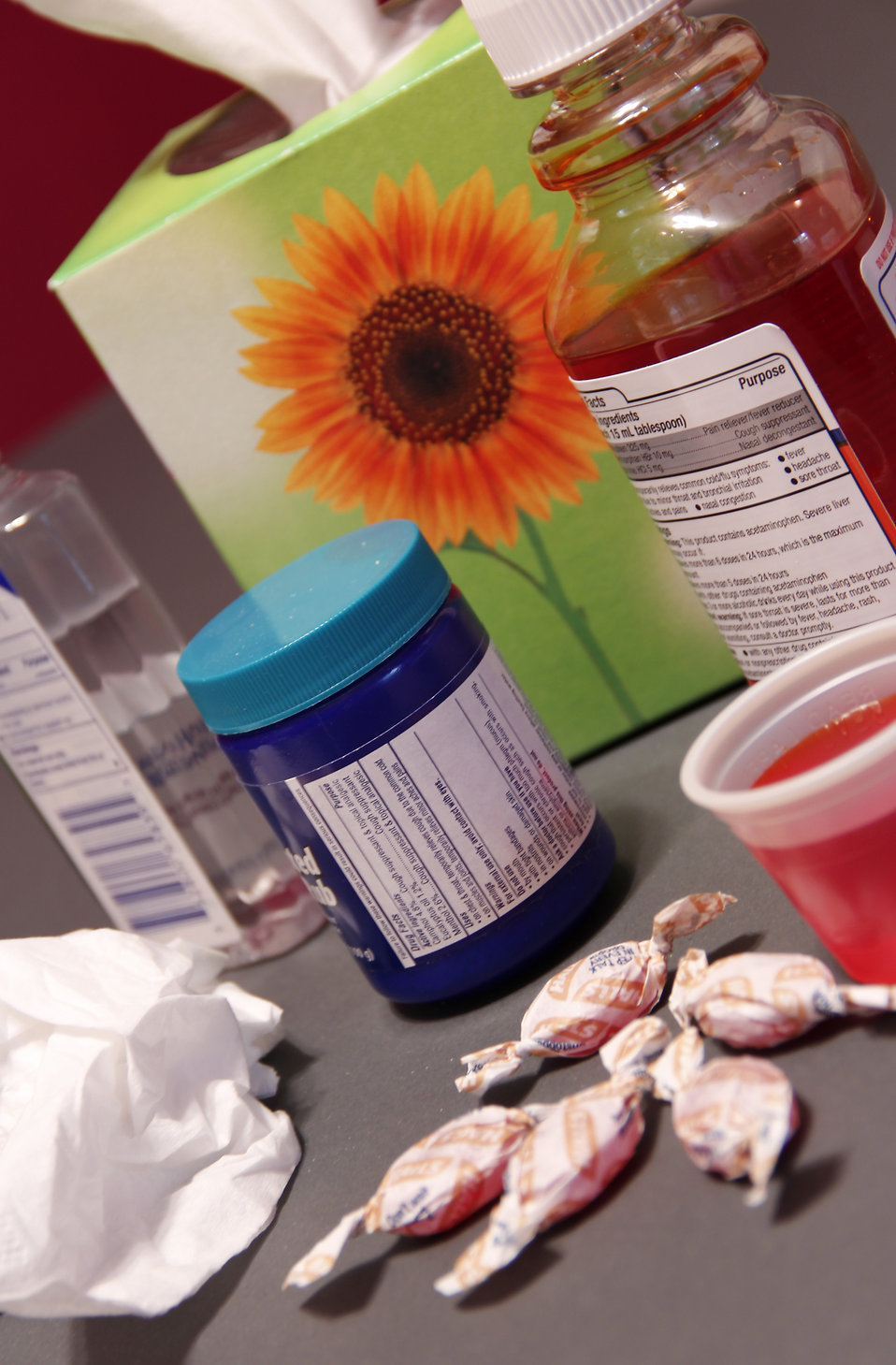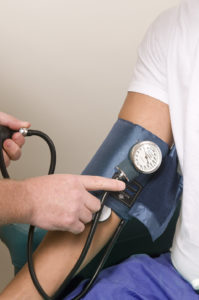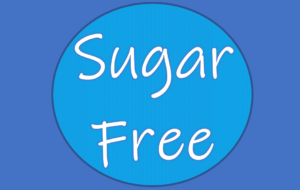Archive for October, 2019
Dietary Supplements. By Our Student Pharmacist, Alexander Schlater.
What is the difference between the two bottles above?
Well, according to the U. S. Food and Drug Administration (FDA), one is a drug and one is a food.
That’s right, vitamins, herbals, and other products that you probably consider medicine are actually considered dietary supplements. What does that mean for you as a consumer? It means you might need to do a little more homework before purchasing these products. You see, dietary supplements are still regulated by the FDA, but they are held to a different standard.
Drug manufacturers have to conduct rigorous studies on a new drug, proving it is both safe and effective before it can go to market. And, if the FDA is not satisfied with the results, they can require further studies or deny the new drug entirely.
Dietary supplements, on the other hand, need only be proven safe, and the FDA does not have to approve the safety analysis ahead of time. So for most reputable companies, you can usually trust the product is safe to take at the recommended dose for a healthy adult. However, there have been cases of less reputable companies selling products that were dangerous, misbranded, and even contained illegal drugs. Always be wary of any suspicious products, particularly those sold online. Even with trusted products, they may not be safe for all individuals.
Here are some things to look out for:
Dietary supplements can be dangerous at high doses.
Supplements may not be considered drugs, but consume enough of anything and it can be dangerous. High doses of iron supplements, for example, could cause severe abdominal pain and vomiting, or even shock or death at high enough doses. Never take more than the recommended dose of a supplement. If you have a health condition, even the recommended dose may not be safe. Consult with your doctor or pharmacist to find out if a new supplement is safe for you as an individual.
Even natural products can be dangerous.
Some people are under the misguided notion that natural equals safe. But there are plenty of things in nature that can kill you: leaves, flowers, fruits, mushrooms, etc. Just because a supplement is natural doesn’t mean it is safe. That is why there are safety trials. Ask your pharmacist to learn more about a particular supplement’s possible risks and side effects.
Dietary supplements can interact with your medications.
Depending on the interaction, some supplements could reduce the effectiveness of certain medications, or some could increase your likelihood of experiencing unwanted side effects. These interactions can be identified by your pharmacist, but only if they know you are taking them. Be sure to tell your pharmacist about any supplements you take so they can screen for interactions.
Dietary supplements do not have to be proven effective and are not intended to treat, diagnose, prevent, or cure diseases.
Marketers will try to get around this with such taglines as “Immune Support” or “Promotes a Healthy Heart,” but that doesn’t mean the supplements necessarily work.
A point of advice, the one trying to sell you a product will always claim their product works. Ask your doctor or pharmacist if a particular supplement has been well studied and what the findings were.
Never use a dietary supplement in place of a medication your doctor prescribed you.
If the supplement actually worked better, your doctor would have prescribed it instead. You might think that supplements are safer than prescription drugs, but this is not necessarily true, and letting a condition such as high blood pressure go untreated or undertreated can be very dangerous.
Dietary supplements can be an important part of health care, but they are often overhyped. A well-balanced, healthy diet should always be your first line for getting your vitamins, minerals, and nutrients. Supplements should be just that… supplements, and they should not be used to replace foods or medicines.
Do your homework with supplements, don’t believe everything you hear, and when in doubt, ask your friendly neighborhood pharmacist.
Join Us For Our 20 Year Anniversary Bash on Saturday, November 16. By Our Student Pharmacist, Barry Shen
November 1 will mark the 20th anniversary of the day Plain City Druggist officially opened. But we plan to celebrate this momentous occasion on Saturday, November 16 with a giant tailgate party in the parking lot.
To commemorate this special occasion, as well as thank everyone in the community for their support, the pharmacy will host a special party for all of our customers.
Background: Plain City Druggist is owned by Joe and Robin Craft who graduated from The Ohio State University’s College of Pharmacy in 1995 and 1999 respectively.
Plain City Druggist originally opened in 1999 as a small store in Lovejoy Plaza in downtown Plain City and later moved to the current location in 2007. At that time, Midwestern Compounding Pharmacy was added to the store providing compounding services for veterinary, dental, dermatological, pediatric, and hormone replacement therapy.
Later in December 2014, Joe and Robin purchased Family Medical Pharmacy on Karl Road and opened up what is now called Happy Druggist. In 2017, they opened their third location also called Happy Druggist in West Jefferson.
Event: The main feature of the event will be The Ohio State University vs. Rutgers University football game which will be broadcast on several big screen televisions in the parking lot. Tents will be set up with various activities and food. Individuals of all ages are welcome. There will be face painting, football, cornhole, and hot chocolate for the kids. There will also be raffle prizes.
The party will get started one hour before kickoff as the time for the game has not officially been announced yet.
Owners: Robin Craft, “I can’t believe that 20 years have passed since we opened the store in 1999. That first week, we passed out candy to trick-or-treaters, re-stickered every item on the OTC shelves, because the cost stickers were wrong, and wondered what we had gotten ourselves into. It was crazy, scary, and a bit overwhelming. Thankfully, we were young and energetic and Joe could talk to anyone. Now twenty years later, we are so grateful to the Plain City community for being so kind to us and supporting us all these years.”
Joe Craft, “I kept telling myself I wasn’t afraid over and over. But Yoda had it right in The Empire Strikes Back, when he said,’You will be!'”
Store manager and pharmacist: Taylor Yutzy, “The fact that Plain City Druggist is still thriving after 20 years is a testament to the vision and determination of Joe and Robin Craft!”
Pharmacy Technician: Phil McDowell, “I am excited that Plain City Druggist has been positively influencing the area for two decades! Glad we have had the opportunity to serve the Plain City community for 20 years!”
Don’t Say No to the Flu Shot. By Our Student Pharmacist, Alexander Schlater.
It’s that time of year again. The evenings are cool, the leaves are changing colors, the grocery stores are peddling pumpkin spice flavored ranch dressing, and your doctor/pharmacist keeps asking if they can stick you with a flu shot.
I’m sure you’ve heard all of the reasons you should say yes, so let’s change it up a little.
Here are the reasons you shouldn’t say no.
Don’t say it is too inconvenient.
Sure, scheduling a doctor’s appointment during business hours can be challenging. But pharmacies are everywhere with many open weekends and well into the evening. You do not need an appointment to get a flu shot at a pharmacy. If you are insured, the flu shot is usually free. Your pharmacist can bill, prepare, and administer a flu shot in about the same amount of time it would take to have a prescription filled.
Bring the whole family. Most states allow pharmacists to administer vaccines to children, though age cutoffs will vary by state and insurance policies.
For the state of Ohio, pharmacists can give flu shots to children as young as seven.
Don’t say it isn’t effective.
The flu shot is not a perfect vaccine, that is no secret. The effectiveness of the flu shot can vary from person to person and from year to year, but, in general, it is estimated to reduce your risk of illness by about half.
Think of it this way: getting a free flu shot at your pharmacy down the street just once a year could cut your risk in half of spending several days in bed, feeling miserable, missing work, and spending money on doctor’s visits and medications. It seems like a no brainer, right? And yet last year, less than half of adults got a flu shot.
Don’t say you don’t need one.
“But I don’t get the flu shot and I’ve never gotten the flu,” you say.
“Not yet,” I respond.
Because anyone can get the flu; young, old, sickly, healthy, in a box, with a fox. Just because you haven’t gotten it before does not mean this won’t be the unlucky year.
Also, the flu shot protects more than just you. The more people who get the shot, the more protected everyone will be. You can’t get the flu unless you come into contact with the virus, and the less people who are getting sick with it, the less people who could inadvertently get you infected.
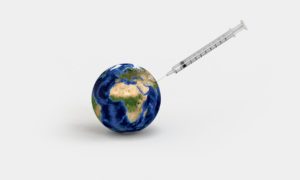 Don’t say it made you sick last time.
Don’t say it made you sick last time.
This statement may just be the bane of every healthcare worker alive. Inactivated flu shots absolutely cannot give you the flu. They do, however, trick your body into thinking you have the flu. In fact, that is how they work. Having a mild sickness-like reaction to a flu shot means it is working and your body is making antibodies that can recognize a live virus later on. This reaction may be more pronounced if it is your first time getting the flu shot.
Don’t say it isn’t for you.
Nearly everyone should get the flu shot. In fact, the only people who should definitively not get one, are those who have had a severe reaction to one in the past, and those cases are less than one in a million.
If you are sick, wait until you feel better… then get a flu shot.
If you recently had a vaccine… get a flu shot. Most flu shots are inactive and do not have to be separated from other vaccines; that only applies to live vaccines.
If you are allergic to eggs… you should still get a flu shot. Some flu shots are produced using chicken eggs, However, the actual presence of egg protein in the vaccine is minimal. In fact, they have done studies giving flu shots to people with egg allergies and found that reactions were unlikely. If you have a mild egg allergy, i.e. getting hives, you should still get a flu shot. If you have a more severe allergy, you should still get a shot, but get it in a doctor’s office so they can monitor you.
In summary…
Don’t say no to the flu shot.
Surviving Cough and Cold Season with High Blood Pressure or Diabetes. By Our Student Pharmacist, Alexander Schlater.
So you’ve got high blood pressure and diabetes, and now, on top of everything else, you’ve got a cold.
You head to your neighborhood pharmacy to pick up some medicine for your incessant cough and pounding headache. As you navigate the aisles scanning a hundred different boxes, all claiming to provide maximum relief, you wonder which is right for you. You also remember an article you read on the Internet, that some cough and cold products can be dangerous if you have high blood pressure or diabetes. You see a box that says for high blood pressure, but that price tag can’t be right, can it? Luckily, your friendly pharmacist notices you are troubled and comes over to assist. You detail your predicament and they happily explain everything you need to know about choosing cough and cold products if you have high blood pressure or diabetes.
First of all, don’t be intimidated by the mountain of choices on the shelf. Most cough and cold products use the same handful of ingredients in different combinations under different brand names. If you ask a pharmacist about a product, the first thing they will do is flip the box over to see what the active ingredients are, and you should too. All too often people will choose a product with a familiar brand name without knowing what they are actually getting. Some products will specifically say they are safe with high blood pressure or diabetes, but many products that don’t say this are still perfectly safe. Don’t pay a premium for the same ingredients with a fancy label.
If you have high blood pressure:
If you have high blood pressure, but your blood pressure is well controlled by taking blood pressure medication, you may be okay to use cough and cold products, especially for short term use, but check with your doctor.
Check the label for these active ingredients that can raise your blood pressure:
Use caution taking products containing NSAIDs like ibuprofen and naproxen. These are used to treat pain, fever, and swelling and may be sold alone or in combination products used for cough and cold or flu. These can make high blood pressure worse especially at higher doses.
Although aspirin is considered an NSAID, at low doses it can actually help protect your heart. If your doctor prescribed or recommended daily aspirin for heart health, keep taking it as directed.
As an alternative you can take acetaminophen. It has the same effect on reducing pain and fever, but won’t affect your blood pressure.
Use caution taking nasal decongestants.
These come in two main types, pills or nasal sprays. The pills contain either the ingredient pseudoephedrine or phenylephrine. Pseudoephedrine is the one sold behind the pharmacy counter. Both can increase your blood pressure. The nasal sprays contain either the ingredient oxymetazoline or phenylephrine (the same one as in the pill).
As an alternative you can use an intranasal steroid such as fluticasone, triamcinolone, or budesonide. These can help with nasal congestion without affecting your blood pressure, and, if you have allergies, they will help with those too.
If you have diabetes:
As with high blood pressure, if your diabetes is well controlled with medications, these products may be suitable for short term use.
Use caution taking nasal decongestants. The same ones that can raise your blood pressure can raise your blood sugar. These include pills containing the ingredients pseudoephedrine and phenylephrine, and the nasal sprays containing the ingredients phenylephrine and oxymetazoline.
Use caution with liquid, chewable, and lozenge medications.
These products often contain sweeteners which may increase your blood sugar. Since sweeteners are inactive ingredients, they might be harder to identify from the label. When in doubt, check with your pharmacist. If possible, opt for a pill that is swallowed. Many products also have sugar free varieties available.
As you can see, there really aren’t that many products that you need to avoid. Don’t be intimidated by all the different brand names and sensational claims. Check your medication label for the active ingredients and know what you are taking. And rest assured, if you’re ever unsure of what is best to take, your pharmacist always has your back. All you have to do is ask.
Meet Our Student Pharmacist, Alexander Schlater, for the Month of October at Happy Druggist in West Jefferson.
This month at Happy Druggist in West Jefferson, Paul and the gang are joined by Alexander Schlater, a fourth year pharmacy student from The Ohio State University’s College of Pharmacy.
Alex will graduate in May 2020 and will then take the test to become a registered pharmacist. Alex will be in West Jefferson throughout October, so please stop by and meet him while he is in the store.
Here is what Alex tells us about himself:
Hi. I am Alex Schlater, a fourth-year pharmacy student at The Ohio State University College of Pharmacy. I grew up in Dayton, Ohio and attended Wright State University where I did my undergraduate studies in Chemistry and Psychology.
At Wright State, I cycled through what now seems like an inordinate number of career paths including education, biochemistry, neuroscience, and psycholinguistics. I began considering pharmacy for the same reasons as these other fields of study; a science heavy field focusing on how the human body is affected in different scenarios.
What set pharmacy apart was the real-life applicability of the field. Being a pharmacist was something you did, rather than something you studied and wrote about.
From there, I got a job as a pharmacy technician. I fell in love with the fast-paced environment and need for critical thinking that keeps you active and engaged throughout the work day. I have not looked back.
It was reassuring finally having a set path to follow.
Once in pharmacy school, however, I discovered that my path was not as set as I had thought. I was going to be a pharmacist, sure, but who knew how many different kinds of pharmacists there were?
Again, I began picturing myself in all of these different settings to see what fit. And while nuclear pharmacist would be an impressive way to introduce one’s self, what I have learned along the way is that I want to work with patients, be it in a traditional community pharmacy setting or the new one-on-one opportunities available to pharmacists. For now, I will keep an open mind and see where my journey takes me.
Outside of pharmacy, my interests include music, travel, and food. I play guitar and love recording music. I hope to get a self-produced album done within the next year. My biggest musical influence is Tony Iommi of Black Sabbath, whose songs made up nearly all of my early musical education. I have also learned a lot from the works of Eric Johnson, Jon Schaffer, and Randy Rhoads.
As I said, I love to travel, whether that be to China or just a few states over. While abroad, I enjoy seeing the changes in the mundane. For instance, if you bump into somebody do they say some equivalent of “excuse me” or ignore it; do you hand money over or set it on the counter? Those kinds of things enthrall me.
I also love hiking in different regions of the world, as it lets you experience the differences down to an environmental level; what kind of trees you pass by, how steep the path is, and how rough the soil is.
And of course, I love experiencing different cuisines. While some might go queasy at the sight of a bizarre dish, I jump at the chance to try something new and unique.
Life is a collection of experiences and I plan to make the most of my time.


